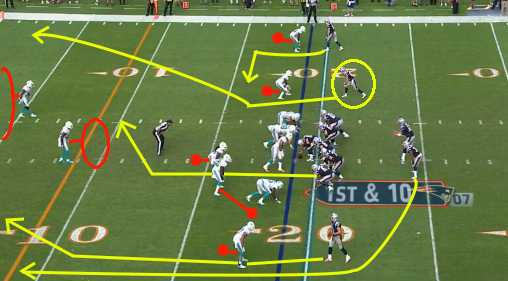As the annual criticism of Major League Baseball’s All Star Game player selection swings into full gear approaching the 2012 game, it’s interesting to look back on the sometimes sullied history of player selection for the Mid-Summer Classic.
For instance, I discovered that current Baseball Commissioner Allan “Bud” Selig was linked to at least one ballot-stuffing scheme prior to the 1975 All Star Game, played that year in Milwaukee’s County Stadium.
At the time, Selig was President of the American League Milwaukee Brewers and the Brewers’ front office was actively seeking to get Brewer players, specifically first baseman George Scott and shortstop Robin Yount, into the starting line-up.
That year a man named David Jaeckels also made it his primary mission in life to complete as many All Star ballots as possible with Scott and Yount chosen at their respective positions. “They really deserve it,” Jaeckles insisted. “With the game in Milwaukee it would be a shame if we don’t get our players in the game.”
The June 20, 1975 edition of the Milwaukee Sentinel featured a story about David Jaeckels, who was an employee at Allen-Bradley, a local manufacturing company.
Jaeckels was tracked down by Milwaukee Sentinel reporter Ken Bunch and he gave Bunch a detailed and lengthy account about how the Brewers front office was assisting him by providing “at least” 30,000 All Star ballots for him to mass puncture with a power drill. “I’ve got a small hand drill and I can go through them pretty fast,” enthused Jaeckels.
In 1975 All Star ballots came in the form of cards that allowed fans to vote by punching a perforated hole next to a player’s name. Preferably with a finger or pencil. But, as Jaeckels discovered, if you carefully lined stacks of cards up it was possible to power drill through dozens at a time. The cards could then be dropped off at the Brewers’ County Stadium and counted as official fan votes.
“I’ve already punched about 7,000 ballots at work,” Jaeckels admitted in what may have been a surprise to his employer. “If I only punch out the Brewers, I figure I can drill 4,000 an hour and do them all (30,000) in a week.”
And just how did David Jaeckels get 30,000 All Star ballots? He actually asked the Brewers front office for 50,000 ballots, but Brewers front office employee Marcia Selig (sister-in-law of team President Bud Selig) told Jaeckels she would only give him 30,000 ballots. Jaeckels told reporter Bunch that Marcia Selig “arranged for him [Jaeckels] to pick up the ballots Saturday morning” at the Brewers office in the stadium.
“I wanted to make sure she could do it so I called her back to confirm it and she said ‘yes’,” stated Jaeckels.
Jaeckels was not about to give up on getting the other 20,000 ballots he originally asked for. “When I bring them back [to the Brewer front office] and show them I’m serious I’m sure they’ll give me some more.”
Unless he was an incompetent President, it’s logical that Bud Selig would had to have known about the ballot-stuffing scheme. But add one more element.
Milwaukee Brewers Ticket Manager Richard Hackett was completely aware of Richard Jaeckels’ request for 50,000 All Star ballots. “The message I got was the impression he wanted them for Allen-Bradley employees.” There are, as reporter Bunch succinctly wrote, approximately 7,400 employees at Allen-Bradley.
Hackett said he knew of no laws against All Star game ballot-stuffing, but stated the Brewers “would not be a part of it”. “That would probably destroy the concept of fan voting,” he added.
When told what David Jaeckels intended to do with the ballots Ticket Manager Hackett told Bunch, “I’m only aware he’s getting them for Allen-Bradley employees.”
Ironically, no Milwaukee Brewer was elected to start in the 1975 All Star game. First baseman George Scott was chosen as a reserve player as was slugger Hank Aaron.
To summarize, Bud Selig’s sister-in-law made all the arrangements for David Jaeckels to pick up 30,000 All Star ballots at the Brewer’s office. Jaeckels was confident he could get 20,000 more from the Brewers, and described to the Milwaukee Sentinel how he used a hand drill to create thousands of false ballots. Selig’s Ticket Manager was made aware of the scheme by the Sentinel and essentially said he would be shocked, shocked if such ballot stuffing were to occur.
The 2012 All Star game provides an excellent forum for Baseball Commissioner Bud Selig to answer questions about his integrity as the past owner of an MLB franchise. Is it against the law to stuff All Star ballots? No. Just like the use of performance enhancing drugs by players was not technically against the law in the 1990s.
But it’s all about the essential integrity of the game. Right?
Add The Sports Daily to your Google News Feed!
